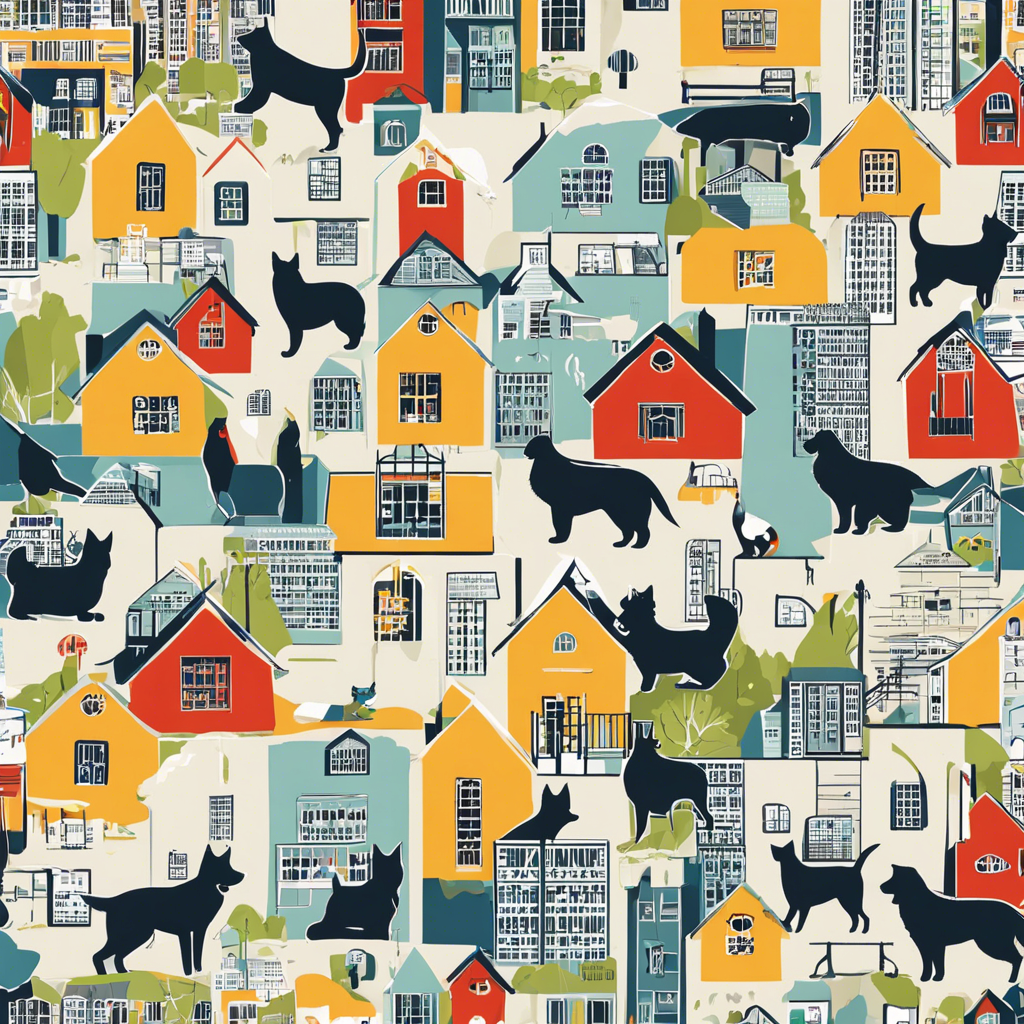A study reveals how pets positively impact neighborhood relationships, fostering a sense of community. Learn more about the findings here.
The presence of pets in our lives extends far beyond the confines of our homes, influencing our interactions and relationships in our neighborhoods. Recent research has shed light on the fascinating ways in which pet ownership can contribute to neighborhood cohesion, creating a sense of community and fostering social connections. This article delves into the research findings and explores the various aspects of how our furry friends shape the very fabric of our neighborhoods.
The Impact of Pets on Social Interactions
In today’s fast-paced world, building connections with neighbors can be challenging. However, pets often serve as catalysts for social interactions, providing a common ground for people to engage and bond with one another. Here’s how they make a difference:
Icebreakers and Conversation Starters
A New York Times article highlights the role of dogs in breaking down social barriers. Whether it’s a friendly chat about your furry friend’s antics or seeking advice on pet-related topics, pets provide an easy and natural way to initiate conversations with neighbors. These casual exchanges can lead to deeper connections and a sense of belonging within the community.
Building Trust and Empathy
Pet owners often share a unique bond, understanding the love and commitment required for pet care. This shared experience can foster empathy and trust among neighbors. Research suggests that pet owners are more likely to trust their neighbors and feel a sense of social support, contributing to a stronger neighborhood network.
Pets as Community Builders
Social Activities and Events
Pets can be the driving force behind various neighborhood events and activities, bringing people together. From dog-walking groups to community pet shows, these gatherings create opportunities for neighbors to interact and build relationships.
Creating Lasting Connections
Regular participation in pet-related events can lead to long-lasting friendships and a deeper sense of community. These activities provide a shared interest and a reason for neighbors to come together, fostering a sense of belonging and collective responsibility.
Practical Benefits of Pet Ownership
Safety and Surveillance
While the social aspects are significant, pets also play a practical role in neighborhood cohesion. Dogs, in particular, act as natural deterrents to potential intruders, making neighborhoods safer. Additionally, dog owners often feel more comfortable walking their pets in the neighborhood, increasing their visibility and presence, which can discourage criminal activities.
Promoting Physical Activity
Pet ownership encourages physical activity, as regular walks and playtime become a part of the daily routine. This not only benefits the pet’s health but also contributes to the overall well-being of the owner and the community. Healthy and active neighbors are more likely to engage in neighborhood activities and form stronger social bonds.
Common Questions About Pet Ownership and Neighborhoods
Are certain pets better for neighborhood cohesion than others?
While dogs are often cited as the prime example, any pet can contribute to neighborhood cohesion. Cats, birds, and even smaller animals like rabbits or guinea pigs can spark conversations and create connections. It’s more about the shared experience of pet ownership and the sense of responsibility it fosters.
How can pet owners facilitate better neighborhood relationships?
Pet owners can actively engage with their neighbors by organizing or participating in pet-related events, offering assistance to fellow pet owners, and being mindful of their pets’ impact on the community. Simple acts like picking up after pets and ensuring they don’t disturb others can go a long way in fostering positive relationships.
Conclusion
Pet ownership has a profound impact on neighborhood cohesion, fostering a sense of community and strengthening social bonds. From initiating conversations to encouraging physical activity, pets contribute to a healthier and more connected neighborhood. As research continues to uncover the benefits of pet ownership, it’s essential to recognize and appreciate the role our furry companions play in shaping the neighborhoods we call home.
External Links:
1. ‘The Dog–Human Love Affair’: An article by Natalie Angier in The New York Times
2. ‘Pets and communities: How our neighbourhoods could be healthier if only there were more dogs’ by Hannah Wells in The Conversation
3. ‘Pet ownership and human health: a brief review of evidence and issues’ by Terry L. Hart in the National Library of Medicine
